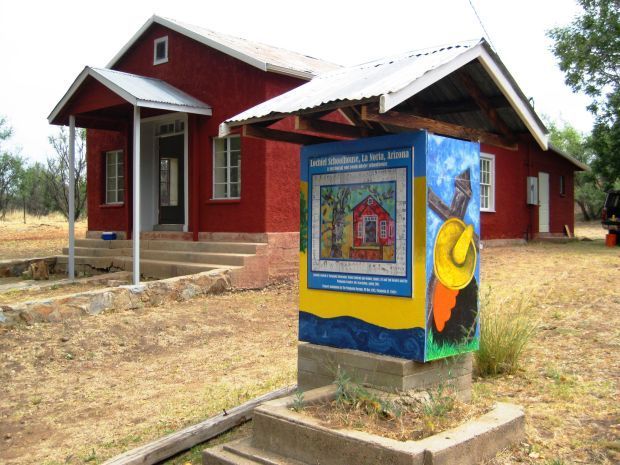The first woman elected to the position of Arizona superintendent of public instruction, Elsie Toles, is considered one of the most influential women in Arizona education.
Elsie Jane McGraw Toles was born in Bisbee on Sept. 19, 1888. A member of the first graduating class of Bisbee High School, she spent a year at California’s Pomona College before returning to Bisbee after her mother’s death to care for her younger sister Myriam and brother Silas.
Back in California, she received her teaching certificate from State Normal School in San Jose in 1908 before coming home to teach in Bisbee and Douglas schools.
In 1916, Elsie ran for Cochise County superintendent of schools on the Republican ticket. A staunch Democratic state, Arizona had not elected a Republican to office for many years so Elsie was merely a name on the ballot and not expected to win. To the surprise of practically everyone, she not only won the election but also became so popular she was re-elected in 1918 with no Democrat willing to compete against her.
She found herself in charge of about 90 rural schools scattered across Cochise County’s 6,000 square miles, and was determined to visit every one of them.
Elsie drove the dirt roads of Cochise County in a Model T Ford that spit and sputtered over terrain unfit for a horse much less a gas-powered vehicle. She knew how to change a flat tire and carried a spare 5-gallon can of gas, enough to get her to the next town. “One school was perched on top of a mountain at the end of a winding road,” she once said. “To make the climb, I had to reverse my car and back up three miles of slope so the gas would feed into the carburetor.”
“To visit another school in a remote little goat-raising community, I had to drive thirty miles, park the car, and borrow a horse to ride twelve miles to the school.”
Qualified teachers were hard to come by for these one-room rustic schools and local school boards were sometimes downright combative. “In one instance,” she said, “the board burned down the school to express their personal dislike of the teacher.”
Elsie was also instrumental in instituting Cochise County’s first school health-care program.
In 1920, she ran for the office of state superintendent of public instruction and again, no one expected her to win. She amazed everyone by becoming the first woman in Arizona to hold the office.
Under her leadership, Elsie sought to improve literacy and increase financial aid, particularly for small, rural schools. Placing teacher qualifications under control of the board of education, she required higher standards for attaining certification. She advocated for standardization of school curriculum and more definitive teaching methods, worked to obtain passage of a bill advocating per capita funds for every student, and argued for equal pay between women and men educators.
Remote rural schoolhouses were usually built from scrap lumber and furnished with a few unstable desks, a stove for warmth, and a supply of drinking water.
In 1922, Elsie wrote “Rural and Small Town Schools of Cochise County,” describing the basic requirements of maintaining a country school. The floor of the schoolhouse she wrote, “should be oiled to keep down the dust; the space beneath the floor boarded up on the outside for the sake of both appearance and warmth; adequate cupboard room provided for the text books, and the whole building given a coat of clean gray paint. ... The expense of all this is comparatively small, but it marks the difference between community self-respect and indifference.”
The education superintendent also served as a member of the Board of Paroles and Pardons and many felt Elsie’s presence, as the first and only female on the board, would create a hindrance.
Women were considered too sensitive to determine whether a prisoner should live or die. She was tested early in her term when she received a postcard from an inmate begging for clemency. “Please save my life,” he wrote. “I am sentenced to be hanged September ninth.”
“Receiving that was a terrific shock,” she said. “For the first time I actually realized that in my new position I would have the power to send a human being to his death.”
But Elsie knew, “There was no choice. He was guilty. He paid the penalty. ... I just prayed that I might be given the ability to deal justly and honestly with the claims of human tragedy.”
Elsie lost her bid for re-election as state superintendent in 1922. She returned to school, acquired her master’s degree, and accepted a professorship at San Jose State College in California, where she taught for 17 years.
Retiring in 1945, Elsie moved to the ranch she and her sister Myriam owned in the Chiricahua Mountain town of Portal. They collaborated on writing two children’s books, “Adventures in Apacheland and The Secret of Lonesome Valley.” She also penned several articles encouraging preservation of Arizona’s natural resources.
Elsie Toles died Aug. 29, 1957.





